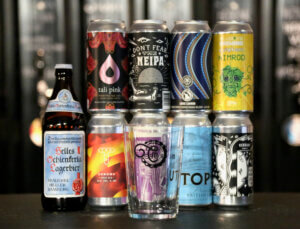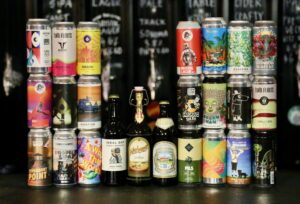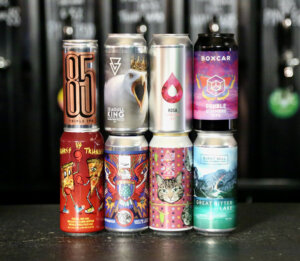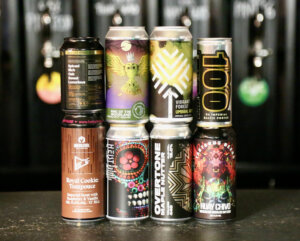Posted on 25/05/23
Beer is one of the oldest and most widely consumed alcoholic beverages in the world, with a rich and fascinating history dating back thousands of years. From its early origins in ancient civilizations to its present-day status as a global industry, beer has played a significant role in shaping human culture and society. In this article, we will explore the history of beer, its various styles and brewing methods, and its cultural and social significance throughout history. Whether you’re a seasoned beer enthusiast or just curious about the world’s favourite beverage, join us on a journey through the fascinating and complex world of beer.
Beer has a long and storied history, with evidence of its production dating back to ancient civilizations. From its early origins as a simple fermented beverage to its present-day status as a global industry, beer has played an important role in human culture and society.
The earliest evidence of beer production dates back to ancient Sumeria, located in what is now modern-day Iraq. Sumerian cuneiform tablets, dated to around 4000 BCE, contain recipes for beer made from barley, wheat, and other grains. The ancient Egyptians also brewed beer, with hieroglyphics depicting beer production and consumption dating back to 5000 BCE. Beer was a staple of the Egyptian diet, with workers receiving a daily ration of beer as part of their wages.
Beer also played an important role in ancient Greek and Roman societies. The Greek god Dionysus, the god of wine, was also associated with beer, and the Greeks brewed a variety of beer-like beverages, including ales and meads. The Romans, meanwhile, were known for their use of herbs and spices in beer production and for their development of large-scale brewing operations.
The alcoholic beverage continued to be an important part of European culture throughout the Middle Ages and into the Renaissance. Monks played a key role in brewing beer, with many monasteries producing their own beer to provide for the needs of their communities. In fact, many of the classic beer styles still produced today, such as Belgian Trappist ales, have their origins in monastic brewing traditions.
The Industrial Revolution of the 19th century brought significant changes to the beer industry, with the development of new technologies, efficient drink storage and the growth of mass production. The invention of the steam engine allowed for greater efficiency in brewing, while the development of refrigeration technology made it possible to produce beer year-round. The growth of the railroads also allowed for the distribution of beer on a much larger scale, leading to the rise of major brewing companies.
In the 20th century, beer continued to evolve, with the development of new styles and the growth of the global beer industry. The rise of craft brewing in the 1970s and 1980s led to a renewed interest in traditional brewing methods and the development of new and innovative beer styles. Today, the global beer industry is a multi-billion-pound industry, with a wide range of styles and flavours available to beer enthusiasts around the world.
Interesting Beer Facts
 Step 1
Step 1
We trawl the globe tasting great beer
















